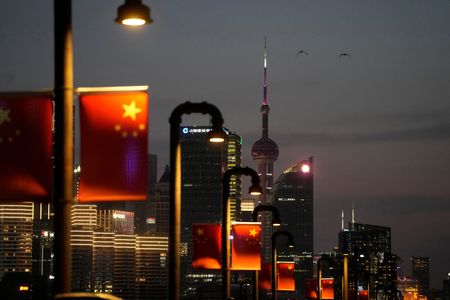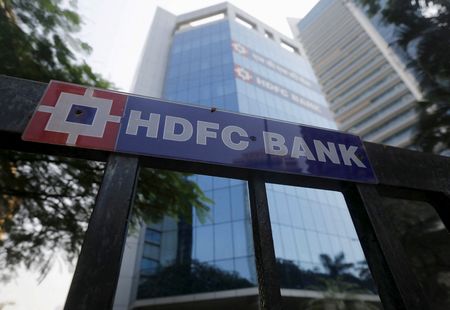By Kane Wu
(Reuters) – Stronger Asia-Pacific mergers and acquisitions activity next year depends on improving macroeconomic conditions, after 2022 deals were held at eight-year lows by financing costs, weak equity markets and China’s pandemic controls, dealmakers said.
Deals are set to revive slowly as companies and funds watch out for easier macroeconomic conditions, they said. Hopes that Chinese companies will return to the market have strengthened.
“We expect more certainty around interest rates, inflation, geopolitics and the commodities cycle to emerge from the second quarter onwards,” said Raghav Maliah, Hong Kong-based global vice-chairman of Goldman Sachs’s investment banking division.
“This will provide a more stable backdrop for the return of a more robust M&A market,” said Maliah.
Graphic: Total Asia Pacific M&A Value, https://www.reuters.com/graphics/ASIA-MA/znpnbbjegpl/chart.png
Deals involving Asia-Pacific companies from Jan. 1 to Dec. 15 were valued at $1 trillion, down 41% from 2021’s full-year number and set to be the lowest since 2014, preliminary Refinitiv data showed. Deals in private equity, a major M&A driver, amounted to $139 billion as of Dec. 15, down 52% on all of 2021.
Globally, record rises in U.S interest rates coupled with the Russia-Ukraine war, which sparked a sell-off in commodities and public equities markets, have battered transactions. Buyers are struggling to obtain leverage financing, which is especially crucial for buyout deals, dealmakers said.
“Banks’ ability to write big-size checks is still much challenged,” said Samson Lo, UBS’s co-head of Asia-Pacific M&A. “A couple of factors for it to happen: interest rates have to start normalizing and equity markets need to be better.”
He said large transactions would be hard to put together in the first half of 2023 due to valuations and the difficulty in obtaining suitable financing.
Sale of a minority stake in Vietnamese education firm Nguyen Hoang Group has been paused, because bids came short of the valuation expectation of $1 billion, Reuters reported this month.
Toshiba Corp, however, said on Dec. 16 it would aim to reach a deal with potential partners as soon as possible in what would be a $16 billion buyout of the Japanese conglomerate, as sources said the group’s preferred bidder was moving closer to securing financing.
India stood out to be the only major Asia-Pacific market to record growth, with total M&A deal value so far up 33% on 2021, at $164 billion. A big contribution to that was a $40 billion acquisition by India’s largest private lender, HDFC Bank, of its biggest shareholder in the country’s biggest-ever deal.
An improvement in Asian equity capital market volumes from three-year lows will also help M&A deals, dealmakers said.
HOPES ON CHINA
The value of deals in China, Asia’s biggest M&A market, fell to a nine-year low of $352.7 billion, down 39%, after the country’s severe COVID-19 restrictions, which abruptly ended earlier this month, stymied economic growth in the world’s second-largest economy.
As the country eases pandemic measures, bankers and lawyers expect pent-up demand to emerge for local transactions and lead to a recovery in cross-border deals.
Thomas Chou, co-head of Asia private equity group at law firm Morrison Foerster, said reopening and recovery would be accompanied by a notable pick-up in acquisitions and expansions in China’s consumer, manufacturing, materials and industrial sectors.
Chinese companies are also showing renewed interest in Australian targets, including natural resources and agricultural assets, amid hopes that a diplomatic thaw between the two countries will yield more deals next year.
Amit Khattar, Asia-Pacific head of Deutsche Bank’s investment bank unit, said there was also substantial appetite for global deals with China links in the logistics, renewables-transition, electric-vehicles and high-end manufacturing sectors. Interest had dimmed for pure China deals, however, he said.
Elsewhere in the region, takeovers of listed companies in Australia, activist-driven transactions in Japan and sales of digital infrastructure assets in Southeast Asia would also drive deals next year, bankers said.
(Reporting by Kane Wu; Additional reporting by Yantoultra Ngui in Singapore; Editing by Anshuman Daga and Bradley Perrett)


